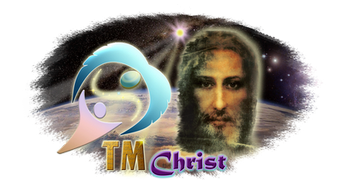Introduction —
It is rare that one can consciously and intentionally design a socially sustainable Christian religion. In reality it has never been done before. But, because of the irrational and unsustainable beliefs of traditional Christian religions, and because we know now about the values the Creator embedded in us during our evolutionary creation, we can now proceed with confidence.
Any Christian religion that wishes to sustain itself for far more than two millennia must have four fundamental elements:
- It must be a religion OF Jesus rather than about Jesus.
- It must be fully in alignment with the values the Creator invested in our species.
- It must be capable of germinating those values in each new generation and serving their changing hierarchies of needs. (See Addendum, page 115, “Human Motivation,” and “Values, ValueInterpretations, Human Needs, and Social Change.”)
- It must be supported by an organization with a vision, intention, operating philosophy, mission, and objectives that are capable of sustaining that religion into a very far distant future.
The religion OF Jesus —
Juxtaposed to the religion OF Jesus is the religion ABOUT Jesus, known as “Pauline Christianity,” developed by the Apostle Paul. The benefit of Paul’s work and the inherent flaws of Paul’s work will be discussed with the result that it leaves us with the stripped-out hull of a nakedly nonviable set of beliefs about Jesus. For us today, the best replacement would be the religion that Jesus himself practiced, the religion that he preached to his followers, the religion OF Jesus.
The simplicity of Jesus’ religion is very appealing. Jesus spoke extensively about a way of living and making decisions that he called “the kingdom of God.” This “kingdom” is a state of mind, an attitude, and consecrated determination of the individual to live his or her life in conscious alignment with God’s plan for them. It begins with —
● First, the individual’s supreme desire to do the will of God, and to have an unselfish love of man which yields the good fruits of improved ethical and moral conduct.
● Second, to maintain perennial faith and sincerity to submit to the doing of the Father’s will without questioning and in the full confidence and genuine trustfulness of the Father’s wisdom; to come into the kingdom free from prejudice and preconception; and to be open-minded and teachable like an unspoiled child.
● Third, to accept the equality of all others with our self. Doing so, we recognize and honor the Fatherhood of God of us all, and the brotherhood of us all.
When we examine these principles together, we see that Jesus’ interest was in the sustainability of the soul of the individual through this lifetime and onward through his or her ascendant spiritual journey. As the willdecisions of mortals are inviolable, the values of our decision-making must be in alignment with the Divine Fragment for It to experience the process of living that produces a life that is becoming more and more like our Creator – perfect in every way.
The religion OF Jesus is completely congruent with the ends that our Creator wishes each of us to achieve. The oneness and integrity of those values, as we will soon see, provide the means to achieve those ends.
